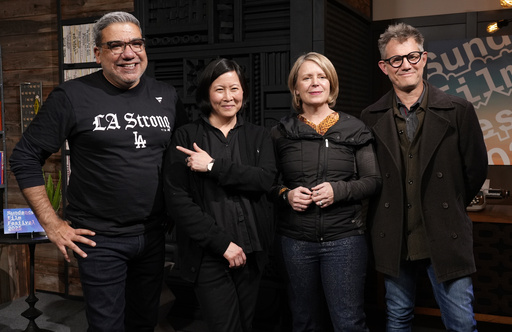
PARK CITY, Utah — The recent Sundance Film Festival, which concluded on Sunday in Park City, Utah, and online, brought forth more than just film; it highlighted significant social issues, particularly the ongoing effects of the wildfires in Southern California. This year’s event held notable poignancy as it marked the second-to-last Sundance festival based in Park City, with many films reflecting on both domestic and international political issues, ranging from transgender rights to the ongoing war in Ukraine.
The Southern California wildfires remained a pressing concern, as they were still affecting the Los Angeles area when Sundance commenced. This situation resonated within the festival, with films such as Max Walker-Silverman’s “Rebuilding.” This film features Josh O’Connor portraying a cowboy devastated by losing his ranch to a wildfire, who then builds a community with fellow survivors at a FEMA camp, striking a chord with many attendees. Filmmakers Meena Menon and Paul Gleason, who lost their home, and Sundance Institute’s Michelle Satter were among those personally affected. At a fundraising gala, Satter moved the audience to tears as she spoke about the need for community support in this tumultuous time: “It’s a deeply devastating time for us and so many others, a moment that calls for all of us coming together to support our bigger community,” she expressed.
The anticipated shift of the festival to a new city by 2027 became a hot topic throughout Sundance. Discussions were rife with curiosity about the future location and its implications. Actors and filmmakers exchanged thoughts on how the change might affect the festival’s identity, expressing sorrow at leaving behind Park City. Among those contributing to the conversation was Tessa Thompson, a board member for the Sundance Institute, who emphasized the community spirit inherent to the festival, stating, “I think that Sundance has more to do with the spirit and community, and I think that’s evergreen.”
Though political themes lingered in the backdrop, overt public demonstrations were not prevalent this year, unlike past festivals during Donald Trump’s presidency. Several films broached political topics, such as “Heightened Scrutiny,” which explores the media’s portrayal of transgender issues. Filmmaker Bill Condon referenced Trump’s declarations about gender before presenting his film, hinting at contrasting viewpoints within storytelling.
In terms of sales and market activity, the festival saw a lesser number of significant deals, with just a couple of notable acquisitions before the festival wrapped up. Netflix secured “Train Dreams,” while Neon picked up “Together,” a relationship body horror film. Traditionally, many distribution agreements materialize after the festival concludes, but it was suggested that this year’s offerings may have been less commercially viable than previous events. Nevertheless, industry insiders indicated that opportunities remain, with mentions of major deals potentially occurring at other upcoming markets, such as the Berlin Film Festival.
Among the standout films showcased were “Sorry, Baby,” marking Eva Victor’s impressive directorial debut, which boldly tackled sensitive themes surrounding sexual assault by focusing instead on the protagonist’s emotional journey. Another noteworthy entry was James Sweeney’s “Twinless,” which won accolades for its poignant narrative about friendship in grief. Documentary film “André Is an Idiot,” which chronicles a man navigating end-of-life experiences after forgoing a colonoscopy, significantly captured audience interest, while Hailey Gates’ satirical take on war, “Atropia,” received a warm response despite mixed critical reviews.
As the festival comes to an end, many films still seek distribution, while others, eager to make their mark, include titles that resonated well with both viewers and critics alike: “If I Had Legs I’d Kick You,” “DJ Ahmet,” “Cactus Pears,” “Plainclothes,” and several more.

